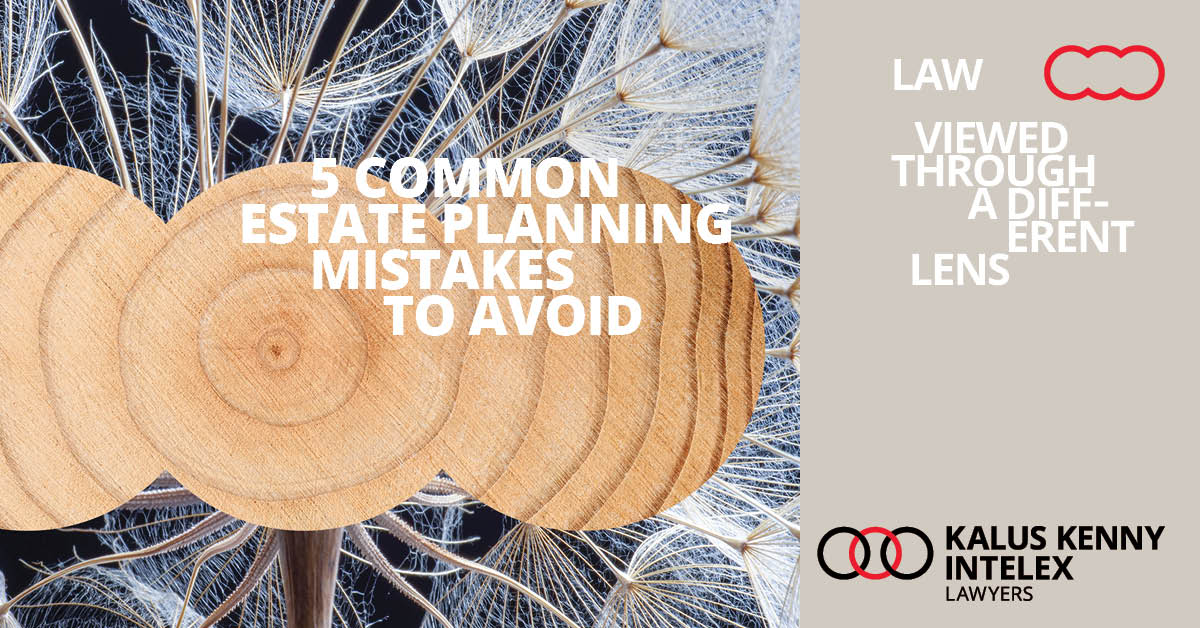It can be difficult to know where to start when it comes to implementing an effective estate plan that reflects your wishes and protects the interests of your loved ones.
It is important that you get it right and in order to help you do so, we’ve outlined below 5 common estate planning mistakes for you to avoid.
1. Failing to make an estate plan
A common misconception is that you don’t need an estate plan if you don’t have significant wealth. This is simply not the case.
Regardless of your personal and financial circumstances, you should have in place an estate plan that ensures:
- you are looked after during your lifetime;
- your wishes can be easily carried out after your death; and
- the interests of your beneficiaries are protected.
A good estate plan can, at the very least, provide you with peace of mind that your loved ones will be looked after when you’re gone, and that the process of administering your estate will be as stress free for them as possible.
Generally, your estate plan should comprise of a Will, an Enduring Power of Attorney, an Appointment of Medical Treatment Decision Makers, and a suite of other documents that deal with each of your assets.
2. Failing to consider asset ownership
When conducting your estate planning, you need to consider and identify each of your assets, as well as the ownership of those assets. The way each asset is owned will have an effect on whether it will be an “estate asset” to be distributed by your Will or not.
For example, where an asset is held by you in a joint tenancy with another (or others), your interest will pass directly to any surviving joint tenant upon your death. In such a case, the asset is not an estate asset and your Will will not deal with it. Your interest in any asset held by you as a tenant in common, however, will pass to your estate on your death and is dealt with by your Will.
Understanding the ownership of your assets when considering your estate planning is important so you can make sure you provide for your loved ones adequately in the way you intend and so you can deal with the assets as you wish.
3. Failing to consider tax implications
Australia, unlike many countries, does not have an “inheritance tax”. That is, there is no direct taxes on a deceased estate. However, that does not meant that your estate will not be subject to any tax at all. The way in which you distribute your assets may have other tax implications that effect your beneficiaries such as Capital Gains Tax (CGT) from the sale of assets as well as their income tax liabilities.
There are ways to structure your estate plan in order to minimise taxes.
4. Failing to consider superannuation
Your superannuation is likely to be a significant asset in your asset pool. It is important to understand that superannuation is not automatically included as part of your estate assets and as such, it may not be automatically distributed in accordance with your Will.
In Australia, all superannuation funds are held on trust by the relevant superfund trustee, who will decide who will receive your benefit after your death, unless you complete a Binding Death Benefit Nomination (BDBN).
A BDBN is a document that outlines your wishes in respect of who should receive the benefit of your superannuation after your death. A BDBN imposes an obligation on the trustee to pay your death benefit as you nominate, as opposed to exercising their own discretion.
For more information on things to consider when completing a BDBN, please see our article “Have you considered your superannuation when reviewing your estate planning?”
5. Failing to update your estate plan
Finally, once you have completed your estate plan, you need to ensure that it is regularly reviewed and kept up to date, especially when your circumstances and priorities and those of your beneficiaries, may change.
If you fail to review and make revisions, your estate plan may not reflect your wishes as at when you pass away.
If you need assistance with your estate planning, please contact Kimi Shah.



